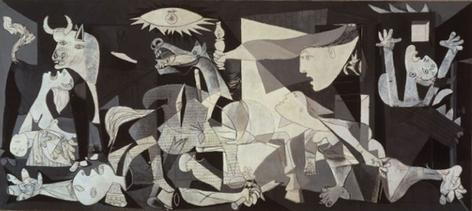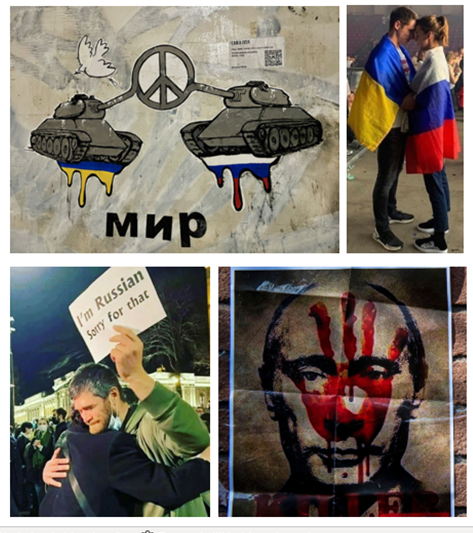Putin, please stop this war

Picasso's Guernica is considered one of the most iconic paintings of military conflict.
War starts with ideas, with ideology and imagery.
In earlier days most people had no access to independent information, but that changed with the rapid rise of social media. By using algorithms, fake news increasingly competes with the impact of real news.
Prior to the invasion of the Ukraine, pro-Russian online disinformation campaigners flooded the internet with images and videos depicting Ukraine as aggressors. Many misleading posts portray the Ukrainian government as corrupt, neo-Nazi, and Russophobic. Often these unsubstantiated claims are picked up and amplified by Russian state media which gives them further reach.
Glasnost (openness) en Perestrojka (reform) were the magic words in the waning days of the USSR and, like other former Soviet Republics, Ukraine declared its independance in 1991. Putin called the breakup of the Soviet Union "the greatest geopolitical drama of the century”. He claims Ukraine to be part of ‘historic Russia’, which began in 988 in Chersonesos in Crimea, where Prince Vladimir of the Kievan Rus, was baptized as a Christian, who then also had his subjects baptized by immersing them in the Dnipro River. According to Putin, three sub-nations have developed from the Rus: the Great Russians, the Little Russians – as he calls the Ukrainians – and the Belarusians; historically one main group religiously, linguistically and culturally (Russkiy mir).
The current crisis can be traced back to 2008, when Ukraine and Georgia had taken a first step in the NATO membership process. The Russian government reproached that, despite promises not to do so, NATO had expanded significantly into Eastern Europe. In the eyes of Russia, NATO has committed a breach of contract, putting Russian security at risk.
After centuries of bloodshed, foreign domination and internal strife, Ukraine now finds itself in a predicament between East and West.

The recent brutally suppressed protests in Belarus and Kazakhstan have shown that Russia does not tolerate opposition in its own backyard. Putin is increasingly ruthless against supporters of Russian opposition leader Alexei Navalny and other opposition groups.
In this political field of tension, Putin cannot afford to have a country next door that beckons so emphatically to freedom and prosperity, and in concrete terms also to EU membership.